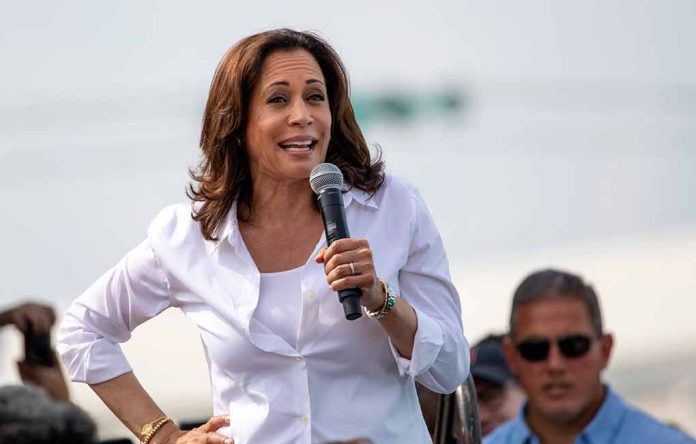
The Washington Post faces an unprecedented crisis as 200,000 subscribers cancel following Jeff Bezos’s decision to block a presidential endorsement.
At a Glance
- Jeff Bezos blocked The Washington Post from endorsing Kamala Harris less than two weeks before Election Day
- Over 200,000 digital subscribers canceled, representing about 8% of paid readership
- Multiple columnists and editorial board members resigned in protest
- The decision marks the first time in 36 years the Post has not endorsed a presidential candidate
Bezos’s Decision Sparks Controversy
In a move that has sent shockwaves through the media landscape, Jeff Bezos, owner of The Washington Post, made the controversial decision to prevent the newspaper from endorsing a presidential candidate. This intervention, which occurred less than two weeks before Election Day, has resulted in a significant backlash from both readers and staff.
The decision to block the endorsement of Kamala Harris has led to an exodus of digital subscribers, with approximately 200,000 cancellations reported. This represents a staggering 8% of the Post’s paid readership, a loss that could have severe implications for the newspaper’s financial stability and potentially threaten newsroom jobs.
An endorsement of Kamala Harris was drafted by Post staffers but had yet to be published, according to sources who spoke on the condition of anonymity.
The decision not to publish was made by The Post’s owner, Jeff Bezos, according to the same sources. https://t.co/WC9fovTcvB
— The Washington Post (@washingtonpost) October 25, 2024
Internal Turmoil and Public Criticism
The fallout from Bezos’s decision has not been limited to subscriber cancellations. Multiple columnists and editorial board members have resigned in protest, highlighting the deep internal divisions created by this unprecedented move. The controversy has also drawn criticism from respected figures in journalism, including former Post editor Martin Baron.
“It’s a colossal number,” former Post Executive Editor Marcus Brauchli told NPR. “The problem is, people don’t know why the decision was made. We basically know the decision was made but we don’t know what led to it.”
A joint column signed by 17 Post columnists, including Pulitzer Prize winners, called the decision a “terrible mistake.” The statement emphasized the importance of endorsements in reminding readers of the Post’s values, particularly when democratic principles are under threat.
Questions of Independence and Timing
The controversy has raised serious questions about the Post’s editorial independence and the potential influence of Bezos’s business interests on the newspaper’s decision-making process. Some have pointed to potential conflicts with Bezos’s other ventures, such as Blue Origin’s government contracts, as possible motivations for the non-endorsement stance.
“If this decision had been made three years ago, two years ago, maybe even a year ago, that would’ve been fine. It’s a certainly reasonable decision. But this was made within a couple of weeks of the election, and there was no substantive serious deliberation with the editorial board of the paper. It was clearly made for other reasons, not for reasons of high principle.” – Marty Baron
The timing of the decision has been widely criticized, with Bezos himself acknowledging that it should have been made earlier. This last-minute change has fueled speculation about the true motivations behind the move and has left many questioning the Post’s commitment to its traditional role in political discourse.
Washington Post loses more than 200k subscriptions following non-endorsement, according to report https://t.co/pdNtGHdgyK
— Daily Bulletin (@ivdailybulletin) October 29, 2024
A Broader Trend in Newspaper Endorsements
While the Post’s decision has sparked significant controversy, it aligns with a broader trend of declining newspaper endorsements. Financial struggles and concerns about alienating subscribers in a politically polarized environment have led many publications to reconsider their endorsement practices. In 2020, only 54 of the largest newspapers endorsed candidates, compared to 92 in 2008.
However, the backlash faced by the Post suggests that many readers still expect clear editorial stances on major political issues from trusted news sources. This tension between traditional practices and changing media landscapes highlights the challenges faced by modern newspapers in maintaining their relevance and influence in the political sphere.
Sources:
- Over 200,000 subscribers flee ‘Washington Post’ after Bezos blocks Harris endorsement
- Newspaper non-endorsements at Washington Post, LA Times fit a trend, but their readers aren’t happy
- Washington Post Hit With 200,000-Plus Subscriber Cancelations After Jeff Bezos Nixed Presidential Endorsement: Report
- Washington Post loses a reported 200K digital subscriptions, 3 editorial board members over endorsement veto



